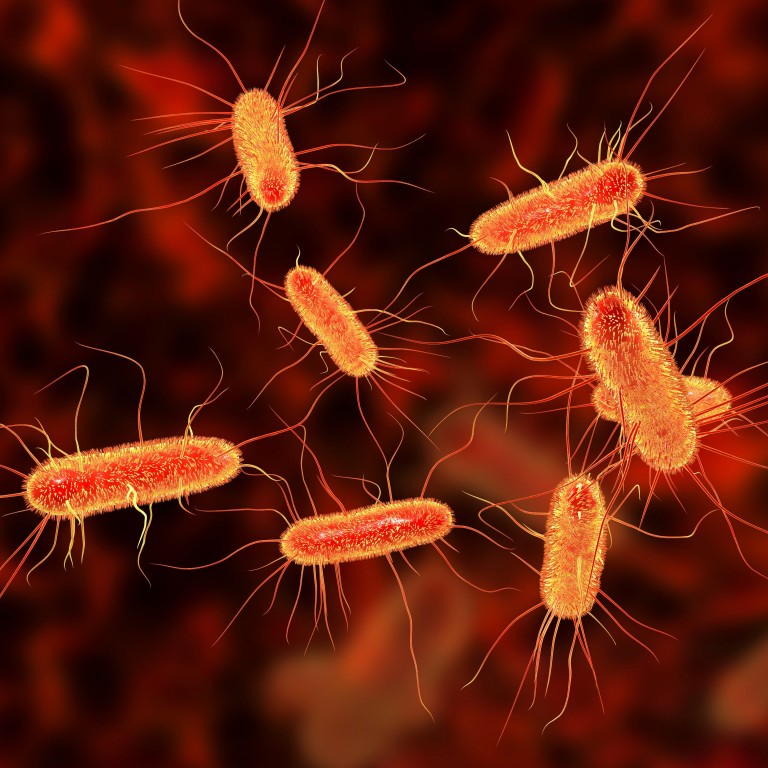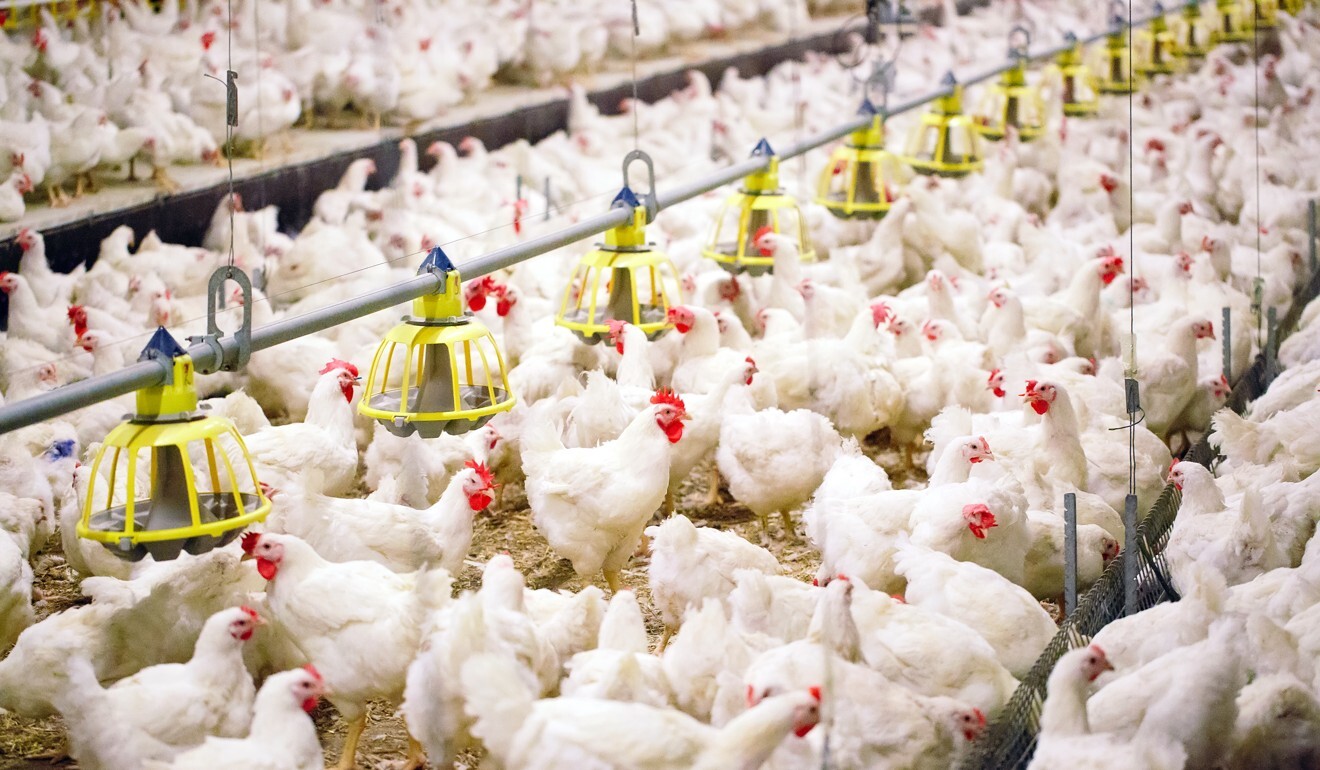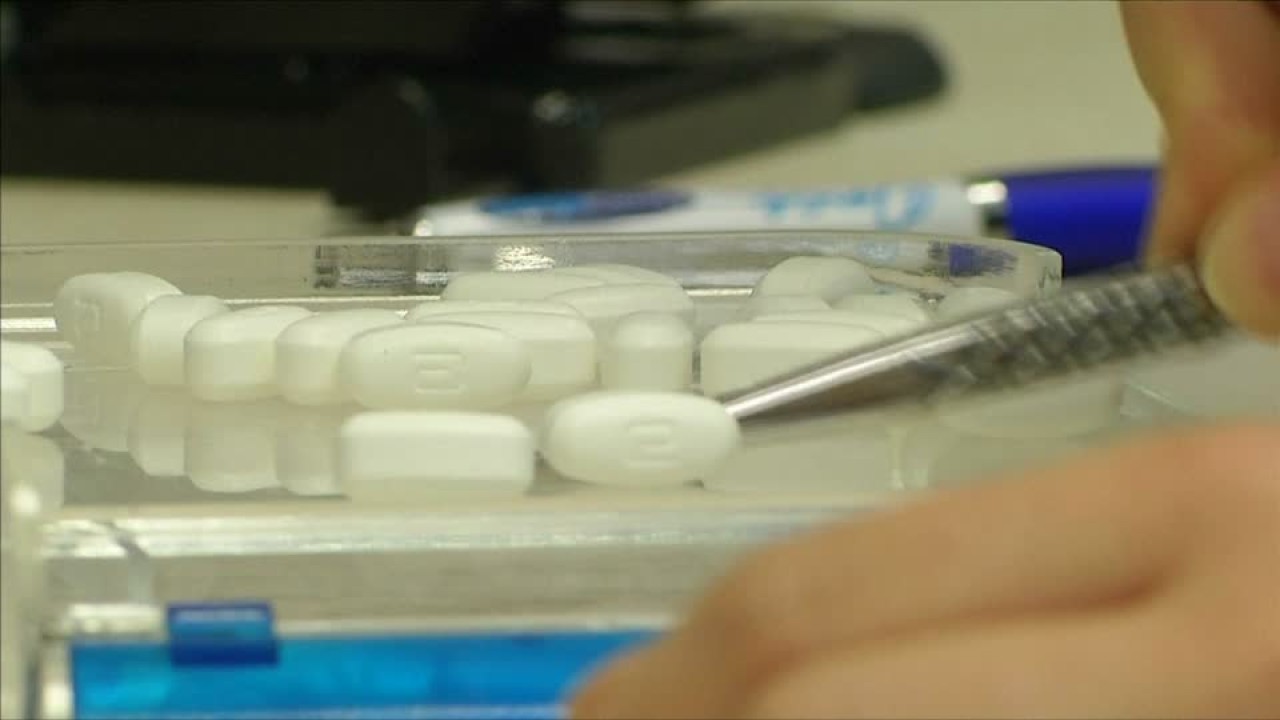
Antibiotics created superbug at poultry farms in China, study finds
- Almost every strain of common bacteria E coli found by scientists had become resistant to multiple drugs
- They said it was the result of overuse of antibiotics and warned it could happen ‘in many countries around the world’
Overuse of antibiotics at some poultry farms in China has turned a common bacteria into a superbug, according to a new study.
Almost every strain of E coli – which can cause severe food poisoning – found at some farms in Shandong province had become resistant to multiple drugs because of the high levels of antibiotics being used.
The superbug could have serious consequences for human health if people became infected through soil, water or chicken meat, a team from Shandong Agricultural University warned.
“This is not just a problem for Shandong or China. This could happen right now in many countries around the world,” said Wang Fangkun, a professor of veterinary medicine at the university and lead author of a peer-reviewed paper published in Poultry Science journal on Tuesday.
Farmers in many countries feed antibiotics to chickens, cattle, pigs and other animals to make them grow faster and to prevent and treat infection. According to some industry estimates, farm animals consume 80 to 90 per cent of the antibiotics produced worldwide.
While antibiotics make it cheaper to produce meat, promoting growth and allowing animals to be kept in overcrowded conditions, they can also give rise to drug-resistant bacteria, or superbugs.

For the study, Wang’s team collected hundreds of samples from six broiler chicken farms across Shandong, a major poultry production base in eastern China, from May to July last year.
They found the farms where conditions were most unsanitary tended to have the most – and worst – drug-resistant strains of E coli.
At those farms, ventilation was poor and the chicken sheds were not cleaned out for the duration of the animals’ lives, about 40 days, Wang said in the paper.
The smell of ammonia from the manure was heavy in the air, and the scientists suggested the bacteria could have reproduced and mutated in the animal waste, then returned to the chickens through direct contact, the air or their drinking water.
Industrial farming of livestock a ticking pathogen bomb, scientists say
Wang said E coli reproduced fast, and “a new generation appears in less than an hour”. After many life cycles in such conditions, a new species of bacteria could emerge.
Such a superbug could pass on drug-resistant genes when it reproduced, but also to other E coli strains circulating in the environment that may not be resistant to drugs, according to the scientists.
They said a particularly concerning finding was that some mutated E coli strains were resistant to colistin, an antibiotic often used in hospitals as a last resort to treat life-threatening infections.
These mutated strains would “probably lead to pan-drug-resistant strains”, they said.

02:28
Superbug warning to drug giants
With no new classes of antibiotics discovered since the 1980s, drug-resistant superbugs are a global health concern. Nearly 3 million people are infected by superbugs worldwide every year, causing more than 35,000 deaths, according to a 2019 report by the US Centres for Disease Control and Prevention.
But Wang said there could be a simple and effective way for farmers to reduce the risk.
The scientists found there was a low prevalence of drug-resistant E coli strains at one farm where chickens are raised in better conditions.
The farm has an automated machine to remove manure and disinfect every couple of days and the cleaner environment could have helped to reduce the number of mutated strains, the paper said.
Antibiotic-resistant superbugs found on farms across the world
Beijing introduced tough regulations on antibiotics in animal feed in July, banning many commonly used drugs. Wang said many farms had since replaced antibiotics with herbal medicines or alternatives such as adding beneficial bacteria to reduce the presence of harmful germs.
But a food safety expert in Beijing who requested anonymity said the ban would not immediately reduce antibiotic use by farms because the drugs allowed them to produce meat at a cheaper cost.
“As long as they stop feeding the drugs to the animal before it goes to the slaughterhouse they can’t be detected,” he said.

